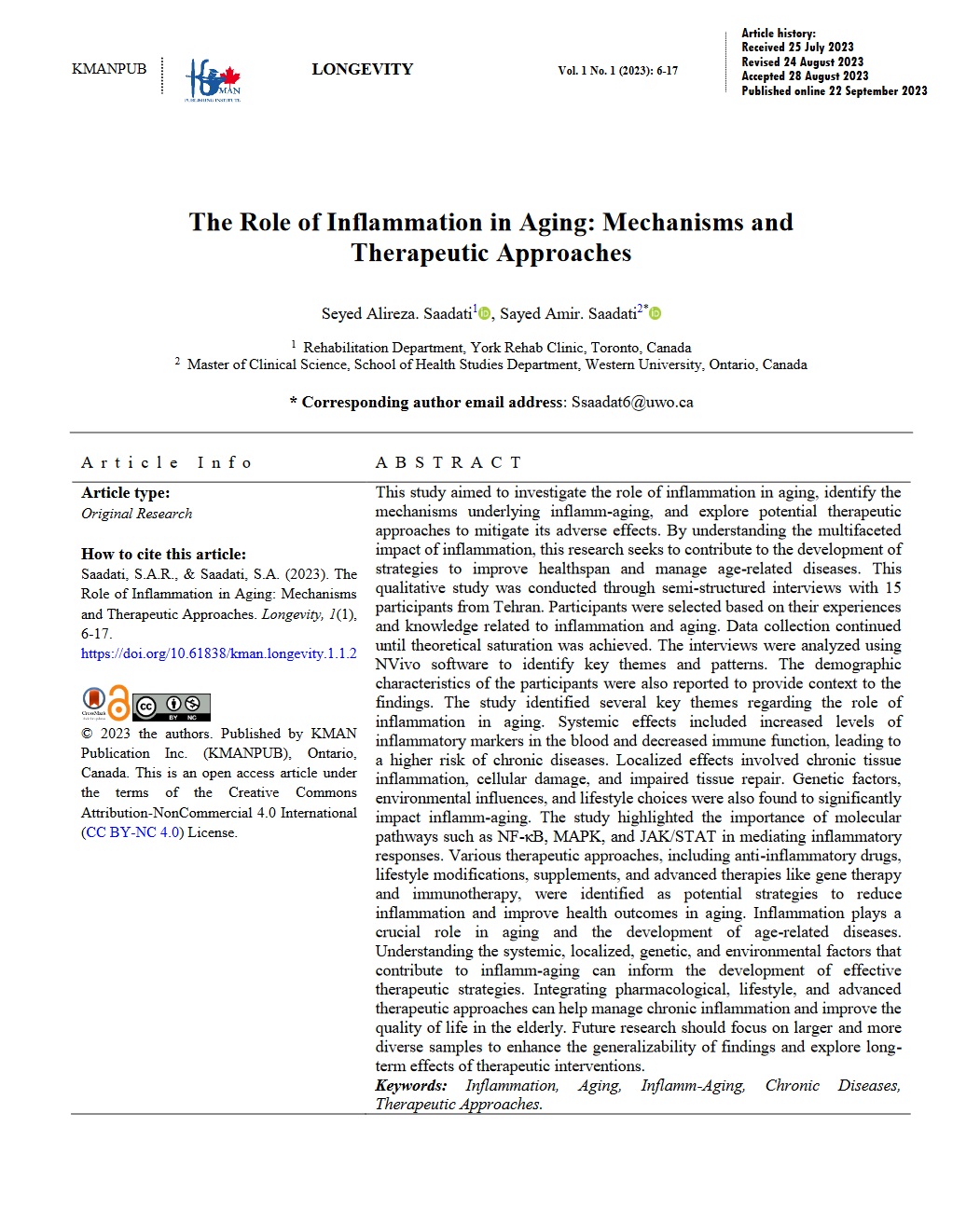The Role of Inflammation in Aging: Mechanisms and Therapeutic Approaches
Keywords:
Inflammation, Aging, Inflamm-Aging, Chronic Diseases, Therapeutic ApproachesAbstract
This study aimed to investigate the role of inflammation in aging, identify the mechanisms underlying inflamm-aging, and explore potential therapeutic approaches to mitigate its adverse effects. By understanding the multifaceted impact of inflammation, this research seeks to contribute to the development of strategies to improve healthspan and manage age-related diseases. This qualitative study was conducted through semi-structured interviews with 15 participants from Tehran. Participants were selected based on their experiences and knowledge related to inflammation and aging. Data collection continued until theoretical saturation was achieved. The interviews were analyzed using NVivo software to identify key themes and patterns. The demographic characteristics of the participants were also reported to provide context to the findings. The study identified several key themes regarding the role of inflammation in aging. Systemic effects included increased levels of inflammatory markers in the blood and decreased immune function, leading to a higher risk of chronic diseases. Localized effects involved chronic tissue inflammation, cellular damage, and impaired tissue repair. Genetic factors, environmental influences, and lifestyle choices were also found to significantly impact inflamm-aging. The study highlighted the importance of molecular pathways such as NF-κB, MAPK, and JAK/STAT in mediating inflammatory responses. Various therapeutic approaches, including anti-inflammatory drugs, lifestyle modifications, supplements, and advanced therapies like gene therapy and immunotherapy, were identified as potential strategies to reduce inflammation and improve health outcomes in aging. Inflammation plays a crucial role in aging and the development of age-related diseases. Understanding the systemic, localized, genetic, and environmental factors that contribute to inflamm-aging can inform the development of effective therapeutic strategies. Integrating pharmacological, lifestyle, and advanced therapeutic approaches can help manage chronic inflammation and improve the quality of life in the elderly. Future research should focus on larger and more diverse samples to enhance the generalizability of findings and explore long-term effects of therapeutic interventions.










